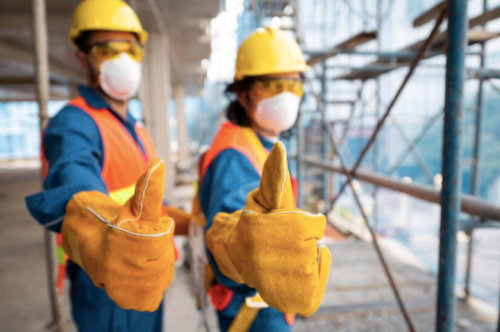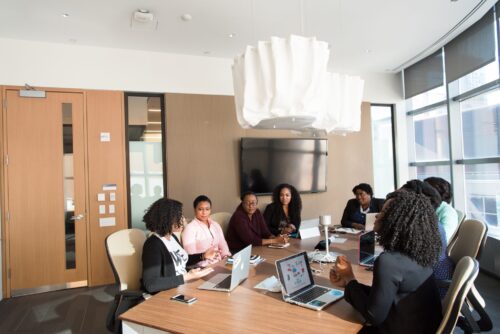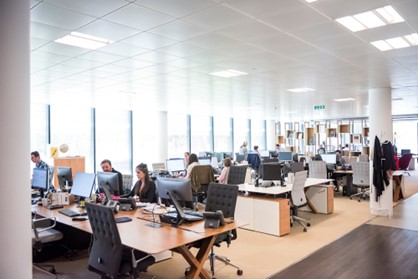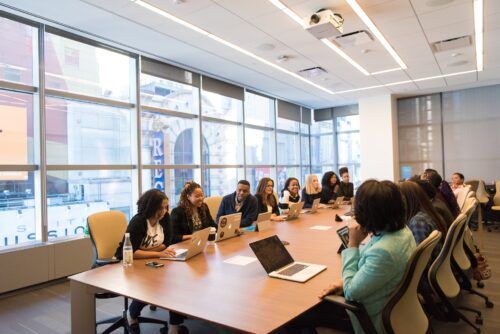Effective consultation in the workplace is of utmost importance and should be valued by all organizations. It is a process that allows employees to have a voice and contribute their ideas and opinions to the decision-making process. This not only makes employees feel valued and heard, but it also leads to better decision-making and more effective solutions. When employees are consulted, they feel a sense of ownership and are more motivated to work towards the success of the organization.
Consultation in the workplace also promotes a positive work environment. When employees feel that their opinions are valued and their ideas are taken into consideration, they are more likely to be engaged and satisfied in their jobs. This, in turn, leads to higher productivity and better overall performance. A workplace that encourages open communication and consultation fosters a culture of collaboration and teamwork, where employees feel comfortable sharing their thoughts and working together towards common goals.
Furthermore, consultation in the workplace can lead to innovation and creativity. By involving employees in the decision-making process, organizations can tap into the diverse perspectives and experiences of their workforce. This can result in fresh ideas, new approaches, and innovative solutions to challenges. When employees feel empowered to share their ideas and are given the opportunity to contribute to the organization’s growth and success, it creates a culture of innovation where everyone feels motivated to think outside the box and come up with creative solutions.
Opinion – Nick Lines “Consultation”
After completing my Cert IV in WHS, the last thing my very wise instructor said to me was communicate, communicate, communicate. This is most likely the best advice I have ever been given. Consultation in the workplace is enshrined in the WHS Act and effective communication is the best way to enable this consultation process. So why communicate?
A PCBU has a primary duty of care to ensure the health safety and wellbeing of all workers. Effective two-way communication is one of the best ways to help ensure this duty of care in the workplace is achieved. So, what can you do to help ensure effective communication in your workplace? Just talking can be a great start. Talk to your teammates, colleagues, and even your manager about work practices or other issues you may be concerned with. An open and constructive approach to talking with your co-workers and managers about health and safety in the workplace should be actively encouraged. When was the last time you spoke up for safety? When was the last time you provided feedback on a safety issue at work? Communicating your concerns, sharing your ideas or views and talking about issues that affect you or your workmates is a step forward in ensuring positive safety outcomes in your workplace.
Nick Lines – Bachelor of OHS
Effective communication: what does it mean?
When people communicate effectively, they listen to each other’s ideas and consider what they mean, as well as being heard by others.
People are more likely to share important information with each other, to express concerns, and to ask for help when they communicate effectively. When people understand another’s perspective and the situation, they are able to make more informed decisions and come up with more sustainable solutions.
In spite of how simple communication may seem, many messages are misunderstood, resulting in workplace accidents, conflict, and frustration.
Effective Consultation: what does it mean?
During consultations, management and workers discuss systems, policies, practices, and other issues of mutual concern. During this process, points of view and information are exchanged in order to find acceptable solutions to problems.
Although managers have the right to consult, they are still responsible for making the final decision. The law does, however, impose a requirement that workers’ opinions be sought and considered before making decisions that affect them. The employer must determine how to meet this obligation by considering the issue’s effect on workers’ safety and health, as well as what means can be used to ensure effective and meaningful consultation.
When an employer consults workers, it is looking for and incorporating their views before taking a decision. Communication involves two-way interaction between employers and workers, with employers providing information and workers actively participating.
The goal of consultations is to reach an agreement on an issue or topic that is acceptable to all parties and persons, and leads to a safer and healthier environment.
In conclusion, effective consultation in the workplace is crucial for organizations to thrive and succeed. It not only empowers employees and makes them feel valued, but it also promotes a positive work environment, enhances productivity, and drives innovation. By embracing consultation as a fundamental aspect of their operations, organizations can harness the full potential of their workforce and achieve greater success.












